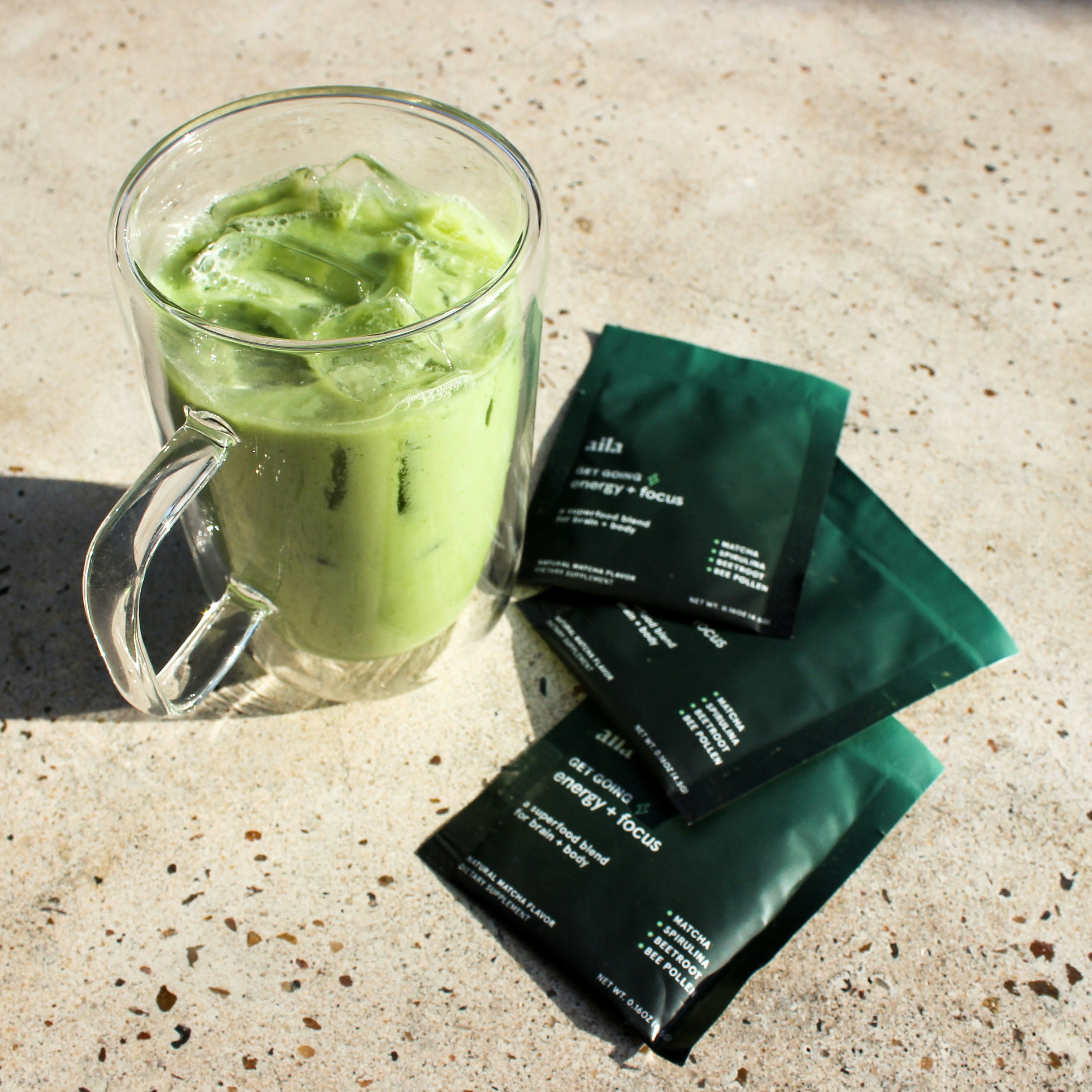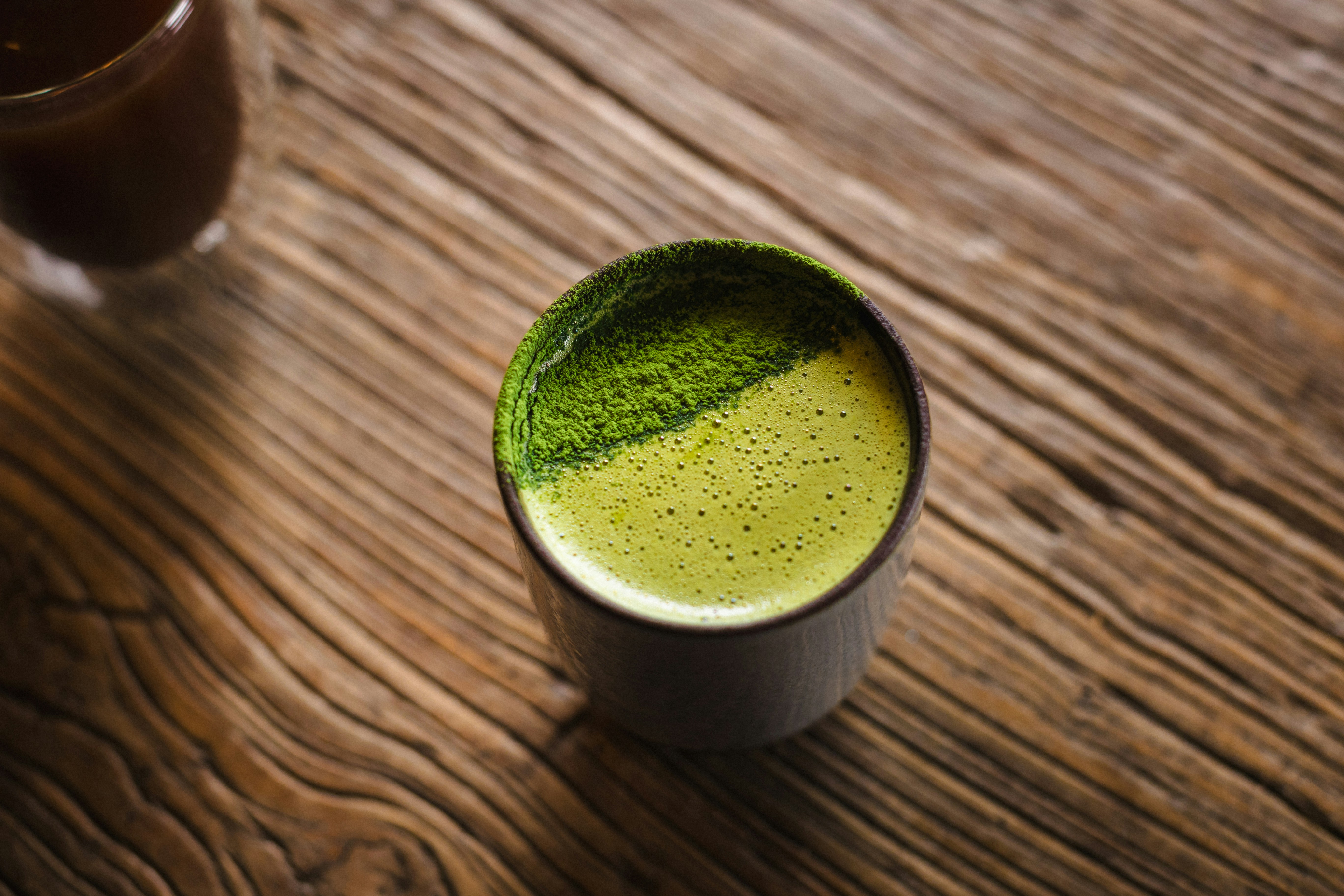Introduction: The Quest for Energy and Focus
In today’s fast-paced world, maintaining consistent energy and focus throughout the day is a challenge we all face. The demands of work, family responsibilities, and social pressures can leave many of us feeling drained and distracted. It’s a common experience to feel overwhelmed by accumulating fatigue, making everyday tasks seem insurmountable. Therefore, it’s crucial to explore strategies to combat these feelings and discover solutions that revitalize us, empowering us to handle our daily activities with renewed vigor.
Many people turn to coffee for an instant energy boost; however, this isn’t always the best choice. Excessive caffeine consumption can lead to anxiety, insomnia, and an eventual energy crash. Natural alternatives can play a vital role in addressing these concerns. Exploring options like black tea not only benefits our physical well-being but also enhances our mental health, providing the clarity needed to concentrate and perform effectively.
The connection between daily energy struggles and natural solutions is gaining increasing attention. In this context, understanding the potential of black tea becomes highly relevant. This ancient beverage offers a rich flavor profile and acts as a valuable ally in maintaining optimal levels of attention and energy. Nature provides valuable tools, like black tea, which can be the solution we need when facing moments of exhaustion and discouragement. Throughout this blog, we will delve into the benefits of black tea and how it can positively impact our daily routine.
What is Black Tea?
Black tea is one of the most widely consumed tea varieties globally, renowned for its robust flavor and high caffeine content. Unlike green or white tea, black tea undergoes full oxidation, resulting in a darker color and distinctive flavor profile. This process begins with harvesting leaves from the *Camellia sinensis* plant, followed by withering, rolling, and oxidation. Finally, the leaves are dried to preserve their unique characteristics.
Black tea originated in China, initially known as “red tea” due to the color of its infusion. Over centuries, it spread to regions like India and Sri Lanka, becoming a significant cultural and economic element in those societies. Today, black tea cultivation spans numerous countries, each with its distinct production techniques and traditions.
Popular black tea varieties include Assam, Darjeeling, and Ceylon, each offering a unique flavor experience. Assam tea, originating in India, is known for its malty character. Darjeeling presents floral and fruity notes highly prized by tea enthusiasts. Ceylon black tea, from Sri Lanka, typically exhibits a lighter, citrusy profile.
Black tea’s popularity stems from its delicious taste and cultural versatility. From traditional ceremonies in Asia to its inclusion in British afternoon tea, black tea has captivated diverse audiences. Moreover, its antioxidant content and beneficial compounds position it as a preferred beverage for those seeking enhanced energy and focus.
Benefits of Black Tea for Energy
Black tea is known not only for its rich, robust flavor but also for its stimulating properties, making it a highly effective choice for boosting energy levels and enhancing focus. One primary reason for this energy boost is its caffeine content. Unlike other infusions, such as green tea or herbal teas, black tea contains a substantial amount of caffeine, ranging from 40 to 70 mg per cup depending on the variety and brewing method. Caffeine is a well-known stimulant that increases mental alertness and reduces feelings of fatigue.
In addition to caffeine, black tea contains L-theanine, an amino acid contributing to improved attention and concentration. The combination of caffeine and L-theanine in black tea creates a synergistic effect, providing a more balanced and sustained state of alertness while avoiding the energy spikes followed by rapid crashes often associated with other energy drinks. Therefore, those experiencing fatigue or needing an extra boost to complete projects or tackle challenging tasks can find black tea a truly effective alternative.
However, excessive caffeine intake can lead to adverse effects such as insomnia, anxiety, or palpitations. Therefore, moderate consumption of black tea is recommended. Incorporating one to three cups daily can be beneficial without exceeding the limit considered safe for most individuals. The personal experience of many black tea drinkers highlights its efficacy during moments of exhaustion, reporting a renewed sense of energy and focus after enjoying this infusion.
Improving Focus with Black Tea
Black tea has become a valued beverage not only for its distinctive taste but also for its positive effects on concentration and mental clarity. Recent research demonstrates that black tea consumption can significantly impact cognitive function, promoting attention and focus. This can be attributed in part to the presence of compounds like caffeine and amino acids that stimulate mental alertness.
Studies indicate that the caffeine in black tea can improve short-term memory and increase attention levels. Research published in the journal ‘Nutritional Neuroscience’ suggested that participants consuming black tea exhibited improved accuracy in cognitive tasks and increased speed in task execution. Furthermore, L-theanine, an amino acid found in black tea, has demonstrated a calming effect that counteracts some of caffeine’s excitatory effects, promoting a state of alertness without the jitters sometimes accompanying other caffeine sources.
Numerous testimonials from individuals incorporating black tea into their daily routines emphasize its role in enhancing productivity. For instance, a professional working in a high-pressure environment noted that a cup of black tea before starting their workday helps them stay focused and alert, enabling better management of work responsibilities. Others have observed that black tea, consumed at regular intervals, allows them to work more efficiently and with greater mental clarity. Thus, black tea presents itself not just as a beverage option but as a valuable resource for those seeking to optimize focus and cognitive performance.
Black Tea vs. Other Energy Drinks
Black tea stands out with its unique caffeine content and flavor profile, making it an interesting alternative for those seeking an energy boost. Compared to coffee, known for its higher caffeine content, black tea offers a more gradual release of energy. This characteristic helps avoid energy spikes followed by abrupt crashes, a common phenomenon associated with coffee consumption. Furthermore, black tea contains L-theanine, an amino acid that promotes calmness and concentration, balancing the stimulating effects of caffeine.
Commercial energy drinks have gained popularity in recent years. These beverages, often high in sugars and other additives, can provide a quick energy boost. However, excessive consumption can lead to adverse side effects, such as palpitations, insomnia, and nervousness. Unlike black tea, which contains antioxidants and other health-beneficial compounds, energy drinks generally lack nutritional value and can contribute to long-term health problems due to their chemical content and excessive sugars.
It’s essential to consider not only the effectiveness of each energy drink but also its nutritional profile and health effects. While black tea presents a more natural and balanced option, it’s crucial to assess individual needs and consumption habits. Some people might prefer the intensity of coffee or the sweet flavor of energy drinks. However, for those seeking a healthier and more sustainable approach, black tea might be the ideal choice, providing a sustained energy boost without harmful side effects associated with some alternative options on the market.
How to Brew the Perfect Cup of Black Tea
Brewing the perfect cup of black tea is an art combining quality ingredients, proper proportions, and attention to detail during the infusion process. Begin by choosing between loose leaf tea or tea bags. Loose leaf tea generally offers a richer, more complex flavor, while tea bags provide convenience. The choice depends on personal preference and available time.
Once the tea type is selected, the next step is water temperature. For black tea, boiling water between 90 and 100 degrees Celsius (194-212 degrees Fahrenheit) is recommended. This temperature range ensures proper release of the tea’s compounds, guaranteeing a robust flavor profile. Using a thermometer allows for optimal temperature control; otherwise, bringing water to a rolling boil and then removing it from the heat can suffice.
Regarding quantity, using one teaspoon of loose leaf tea per eight ounces (240 ml) of water is suggested. If using tea bags, one bag per cup is adequate. Steeping time is crucial, with a recommended period of three to five minutes. Shorter steeping produces a milder tea, while longer steeping results in a stronger flavor and potential slight bitterness.
Finally, black tea is customizable to individual taste. Milk, sugar, honey, or lemon can be added as desired. Experimenting with these additions can enrich the tea-drinking experience, allowing each consumer to discover their perfect blend. Following these steps ensures a perfectly brewed cup of black tea delivering a welcome boost of energy and focus.
Incorporating Black Tea into Your Daily Routine
Black tea’s versatility allows seamless integration into various daily activities, maximizing its energizing and focus-enhancing benefits at different times of the day. A common way to start the day is enjoying a cup of black tea with breakfast. Its rich antioxidants and caffeine content provide an excellent alternative to coffee, offering an energy boost that activates body and mind for a new day.
Another effective option is using black tea as a workday break. A brief respite to enjoy a warm cup not only offers relaxation but also replenishes energy and boosts concentration. This ritual can be especially beneficial during periods of high workload where fatigue can impact performance. Integrating this practice cultivates a healthy, revitalizing habit throughout the day.
Black tea is also an ideal companion during study or concentration periods. Having a cup while reviewing material or working on a project helps maintain alertness and focus. The L-theanine content complements caffeine, creating a more balanced and sustained state of alertness without the side effects associated with some energy drinks.
We encourage you to experiment with different times of day to enjoy black tea. Whether you savor it in the morning, during work breaks, or while studying, each cup can contribute to your well-being and productivity. Find the routine that best suits you and enjoy this globally appreciated beverage.
Precautions and Considerations Regarding Black Tea Consumption
Black tea, recognized for its energizing properties and ability to improve focus, also requires mindful consumption to avoid negative effects, especially in individuals sensitive to caffeine. Black tea contains more caffeine than green or white tea, which can be problematic for those susceptible to its effects. Individuals experiencing anxiety, insomnia, or heart palpitations should moderate their intake or consider lower-caffeine alternatives.
Paying attention to recommended black tea intake is crucial. While no universally accepted amount exists, consuming two to three cups daily is considered safe for most. However, individuals with pre-existing health conditions like hypertension or gastrointestinal disorders should exercise caution. In such cases, consulting a healthcare professional before incorporating black tea into one’s regular diet is recommended.
The effect of caffeine can vary significantly between individuals due to genetic and environmental factors. While some experience improved energy and focus, others may experience negative effects like nervousness or irritability. Therefore, starting with a smaller amount and observing the body’s reaction before increasing consumption is advisable.
Black tea contains compounds like tannins, which in high doses can hinder the absorption of certain nutrients. Therefore, avoiding combining its consumption with meals is recommended. Being mindful of these considerations allows enjoyment of black tea’s benefits without compromising personal health.
Conclusion: The Power of Black Tea and a Call to Action
As we explore the benefits of black tea, it’s clear that this ancient beverage offers more than just a pleasant taste. Its ability to provide an energy boost and enhance focus makes it a valuable option for those seeking additional support in their daily routines. Black tea is rich in antioxidants and compounds that optimize mental and physical health, enabling peak performance in daily tasks. The combination of caffeine and L-theanine in black tea not only energizes but also promotes mental clarity, combating fatigue and lack of concentration.
Incorporating black tea into your diet isn’t merely a matter of enjoyment but an opportunity to revive your connection with wellness practices. Taking a pause to savor a cup of black tea can be a simple yet effective gesture to foster moments of reflection and calm amidst a busy lifestyle. The act of brewing and enjoying black tea can be a ritual that not only stimulates but also invites mindfulness and self-care.
We encourage you to experiment with different black tea varieties, from classic to innovative, and discover those best suited to your daily needs. Making black tea a regular part of your routine could transform your mental focus and energize your days. Ultimately, black tea is not just a delicious beverage; it’s an invitation to a more mindful and healthy life. Don’t wait any longer to immerse yourself in the world of black tea and begin enjoying its myriad benefits.








Leave a Reply